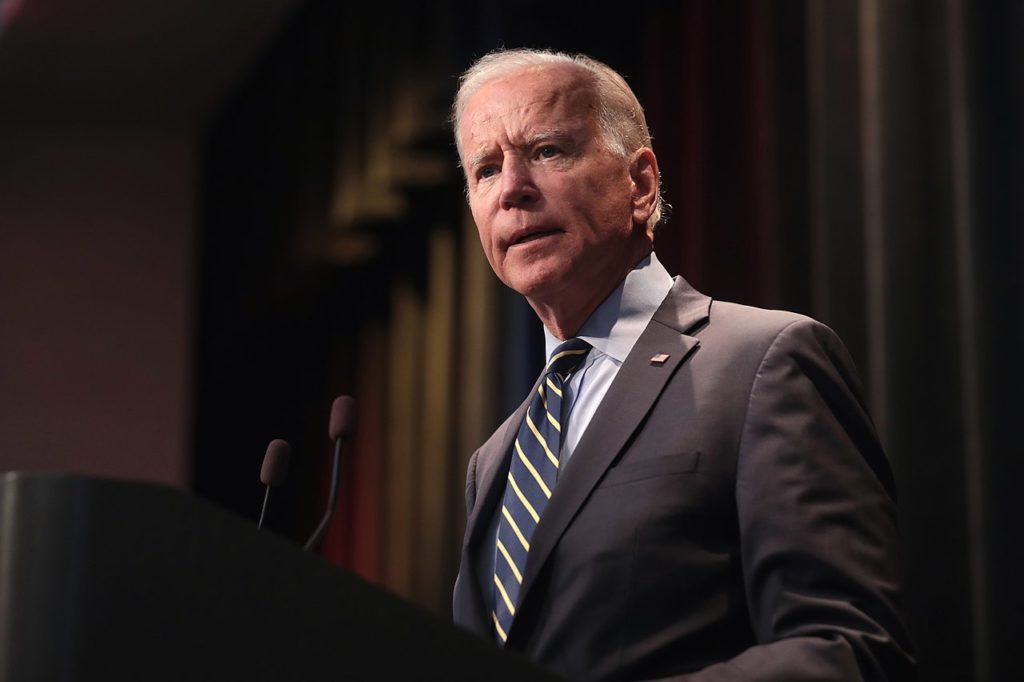IN THE MEDIA
The Biden Administration needs to build on US Mideast achievements
February 22, 2021 | Colin Rubenstein

An edited version of this article appeared in the Courier Mail, 22 February 2021
President Joe Biden’s inauguration brought with it a sea change in American politics, and the new Administration, bolstered by a slim majority in both houses of Congress, is plainly eager to revise the policies of former president Donald Trump.
This is as it should be – it is what democratic elections are for. Yet the new Administration would be well advised to try not to throw the baby out with the bathwater when establishing new policies.
The Biden Administration needs to impartially weigh the effectiveness of Trump’s individual policies in isolation from the tawdry controversies that surround the former president.
Many of Trump’s Middle East policies should be counted among his successes, often achieved through non-conventional approaches that involved rethinking many of the US Foreign Policy establishment’s sacred cows.
As late as 2016, then-Secretary of State John Kerry vowed, “there will be no advanced and separate peace [between Israel and] the Arab world without the Palestinian process and Palestinian peace… That is the hard reality.”
Trump’s envoys thought differently, and have achieved outcomes which prove Kerry was wrong. Today, the family of Arab and Muslim nations that embrace ties with Israel through the visionary Abraham Accords continues to grow, with the active encouragement of the Biden Administration.
The Biden Administration has also, prudently, made clear that it will not reverse Trump’s recognition of Jerusalem as Israel’s capital, a move that was long overdue, nor relocate the US embassy in Israel back to Tel Aviv.
However, on Iran – the greatest threat in the region in the form of its progression towards a nuclear weapon and its destabilising sponsorship of terror and regional military aggression – Biden promises a major reversal of Trump policy with a return to the 2015 nuclear agreement, known as the Joint Comprehensive Plan of Action (JCPOA), which would require an end to the extensive sanctions the Trump Administration imposed on Iran.
To that end, we have seen the appointment of several officials closely associated with negotiating the original JCPOA to positions of influence, such as Deputy Secretary of State Wendy Sherman, Iran envoy Robert Malley, CIA Director William Burns and National Security Advisor Jake Sullivan.
Yet the Trump Administration was right to term that agreement a “bad deal”. Its decision to withdraw the US from the arrangement and seek to build “maximum pressure” to renegotiate the deal by reimposing harsh sanctions has been very effective. It has not yet borne fruit in the form of a suitably revamped deal, but nonetheless leaves the Biden Administration well positioned to hopefully negotiate a much better arrangement.
The exposure of Iran’s nuclear archive in 2018 and its ever-growing litany of violations of the JCPOA have put an end to the charade that its nuclear program was ever peaceful.
Today, Iran is increasing its stockpile of 20% enriched uranium, which is technically most of the way to military-grade, by a kilo every two days. Iran has also begun production of uranium metal, a substance used to stabilise the warhead of a nuclear weapon. And as soon as this week, Iran says it will begin limiting access to its nuclear sites by inspectors from the International Atomic Energy Agency. It has also announced new centrifuges at its Natanz enrichment plant.
Moreover its proxies have been unleashed in Yemen, Erbil in Iraq and elsewhere, suggesting the deterrence established in recent years has weakened. So insisting Teheran restrains its proxies now has become a major credibility test for the Biden Presidency!
Biden and his team should formulate a clear policy strategy to do what the JCPOA did not – genuinely foreclose a military nuclear option for Iran for the foreseeable future, and also limit and deter Iran’s other ongoing rogue behaviours, especially its support for terrorism and subversion across the Middle East.
Biden should recognise that time is not on the side of sanctions-weakened Iran, and keep the onus on Iran to adhere to his policy as articulated by Secretary of State Antony Blinken – to first return to full compliance with the JCPOA before any substantive sanctions relief can take place. The Administration should also take care to retain some bargaining chips so it has the leverage to force Iran to negotiate substantial improvements to the deal in due course.
Meanwhile, back in the Holy Land, efforts to settle the Israeli-Palestinian dispute should remain grounded in reality, rewarding productive engagement in negotiations and removing incentives for the Palestinians to bypass the peace table. The Palestinian should be told that they will be penalised if they continue to seek to internationalise the conflict in bodies such as the International Criminal Court and commit other acts of intransigence.
At the same time, the Biden team should take full advantage of the new regional diplomatic opportunities created by the Abraham Accords to gradually build momentum for peace on both sides. Yet it is important to keep expectations modest, since the conditions that prevented any final agreement in the past are still present today.
Understandably, as America struggles to pull itself out of the morass of the COVID-19 pandemic, the White House will naturally prioritise pressing domestic concerns.
However, the US is too important to global order for the Biden Administration to keep its focus overwhelmingly at home. President Biden and his team simply have too much to do abroad, particularly in the ever-sensitive, problematic Middle East.





